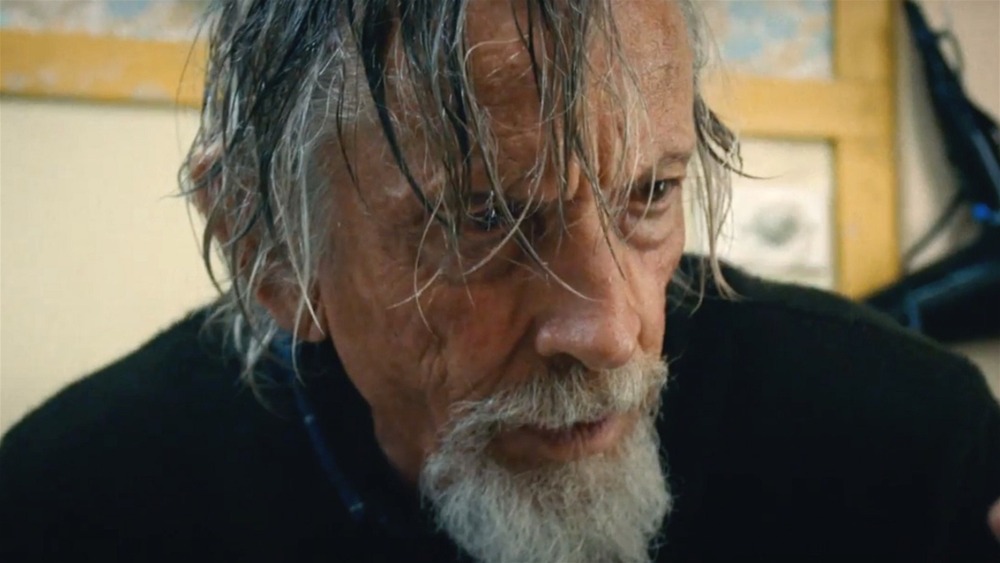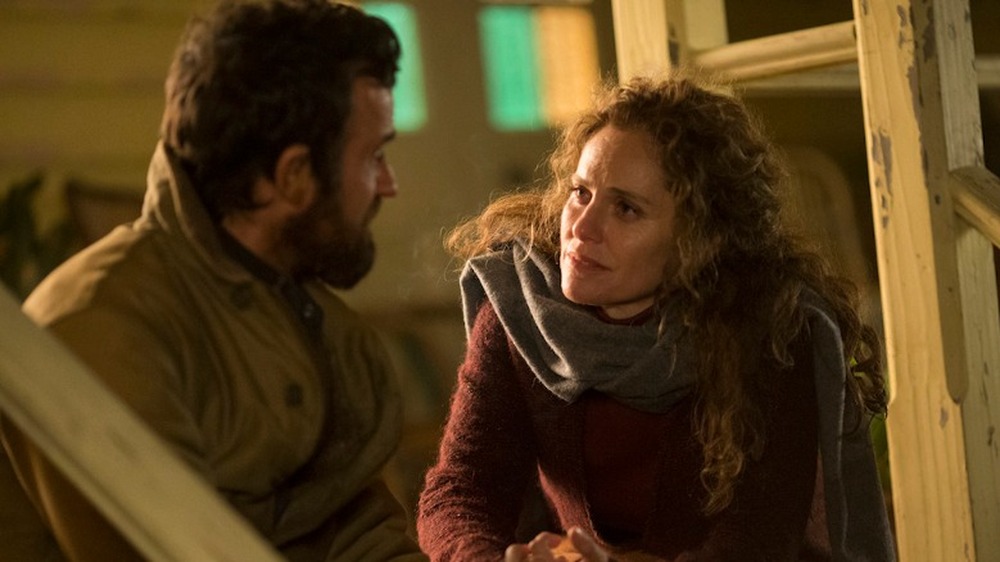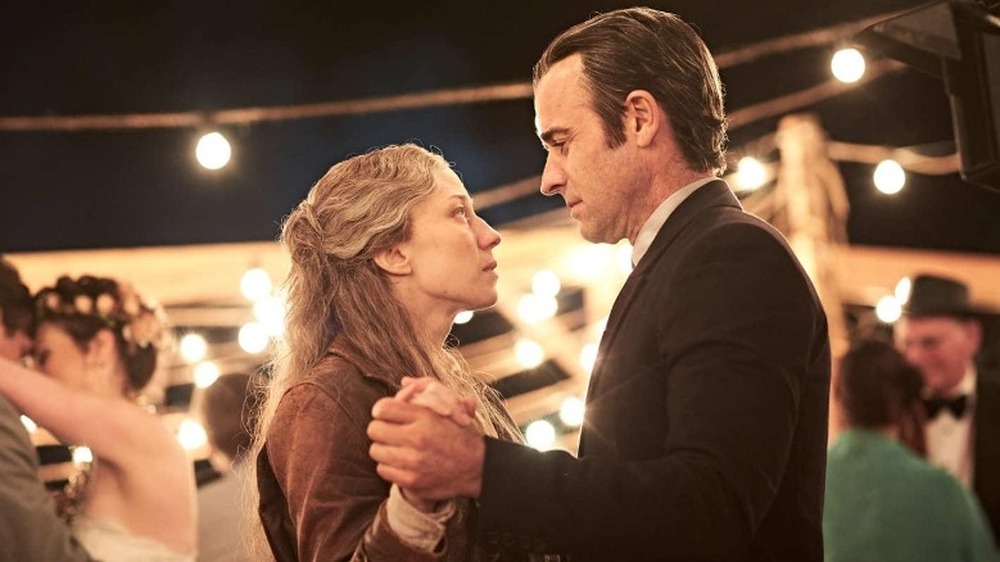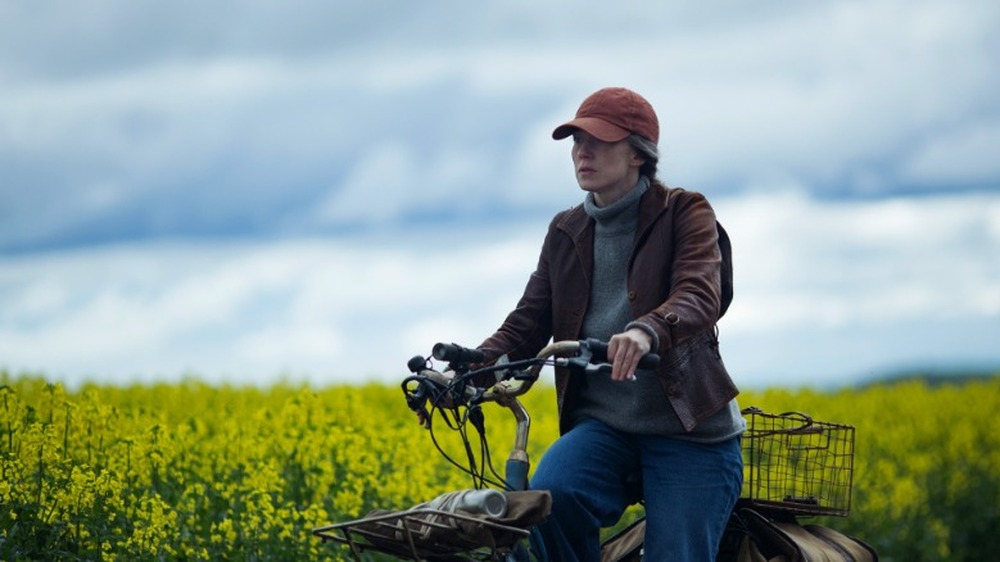The Ending Of The Leftovers Explained
If you click a link and buy a product or service from a merchant, we may be paid an affiliate commission.
The difference between a show with a good reputation and a show with a bad reputation often lies in a satisfying ending. ABC's Lost was arguably the most popular, impactful, and culturally significant drama of the 2000s, but to hear some people tell it nowadays, Lost's strange, befuddling finale might as well have scrubbed it from existence. Maybe it was because of that experience that the show's co-creator and showrunner, Damon Lindelof, went to such lengths to make sure we'd all love the ending of his next project. And, considering the project in question was ultimately crowned as the best TV show of the 2010s, his effort seems to have paid off.
Lindelof's follow-up to Lost, HBO's The Leftovers —which you can stream on HBO Max — was an even more challenging and experimental foray into philosophy and spirituality that never reached similar Nielsen heights, even as it soared with critics. Throughout its run, fans speculated wildly about the explanation for the Sudden Departure, or if there even was an explanation, in an effort to grasp at straws for meaning that often mirrored the desperation of the characters themselves. It wasn't unusual for viewers to express concern that Lindelof might "pull a Lost," leaving them with yet another ending that raised even more questions than it answered.
The grand feat of the show's final season, then, was that it managed to give viewers a deep sense of fulfillment even as it answered very few questions. But as much as series finale "The Book of Nora" may have made us feel at peace with "letting the mystery be," The Leftovers is still a Damon Lindelof show, which means that there's plenty to dig into beneath the surface.
The Leftovers allows each character's story to reach its natural conclusion
One of the things that made The Leftovers so special was the way it took advantage of the episodic format, frequently eschewing conventional TV cross-cutting between subplots to focus on a single character for a whole week. The show's best episodes often felt like self-contained short stories, with a depth of immersion and characterization that nothing else on TV could match. And that narrative asset made it uniquely suited to give each cast member a worthy send-off.
In the final season, the characters are given time to stake their places in the potentially apocalyptic lead-up to the Departure's seventh anniversary. Erika (Regina King) has grappled with her daughter's entry into the Guilty Remnant cult and subsequent death by doing what she'd wanted to do all along: leaving her husband John (Kevin Carroll) and starting life over. Jill (Margaret Qualley) and Tom (Chris Zylka) have grown up and found their own callings in life. John has given up on the life of a skeptic and accepted that he wants to try to communicate with his daughter.
And then there are the characters who get "spotlight" episodes of their own, in which their respective arcs come to a head. Kevin Sr. (Scott Glenn) all but kills himself in the effort to prevent the deluge he thinks is coming. Matt (Christopher Eccleston) finally gets the chance to have a direct confrontation with "God" and let out all of his frustration and anger. Laurie (Amy Brennerman) fulfills the purpose of steering her friends and family towards emotional balance.
All of these natural, fully-realized trajectories converge in "The Book of Nora," which finds room to touch upon each character's ultimate destiny even as it trains its focus wholly on the show's two central figures, Nora (Carrie Coon) and Kevin (Justin Theroux): a decade and change later, Matt has died surrounded by friends and reconciled with his wife, Laurie is still alive and happily married to John, Michael is running the town church, Erika visits when she feels like it, Jill and Tom started their own families, and Kevin Sr.'s stubbornness is still keeping him alive and kicking at 91 years old.
The Leftovers begins as a tragedy of disconnect and ends as a love story
When Nora Durst and Kevin Garvey first hit it off at the Mapleton school dance in season 1, what brings them together is their shared hopelessness. The loss of her entire family to the Departure has left Nora in a perpetual cycle of interrupted grief and virtually unable to form new connections. Kevin hasn't gone through a tragedy of the same scale, but his wife and son are both lost to cults and he has no idea how to raise his daughter on his own. Both of The Leftovers' protagonists start out adrift, confused, embittered, and emotionally isolated. And it's that very lack of perspective that makes it so easy for them to embrace their attraction to each other, regardless of where it may lead.
The whole story of the show is the story of Kevin and Nora trying to make it work as a couple-family, despite their obvious hang-ups. So when season 2 sends them on separate paths — Nora getting a second shot at motherhood and having to figure out by proxy if she's ready to move on, Kevin thrust into the center of a supernatural maelstrom he wants no part of — a ticking clock starts. It's only a matter of time until they fall apart, and they finally do at the midpoint of season 3, when the events in Australia make it obvious that they resent one another deeply for failing to commit to the relationship. To get back together, they need to strip themselves of all the pain and baggage.
That's what happens in the last two episodes. In "The Most Powerful Man in the World (And His Identical Twin Brother)," Kevin's return to the world of the dead leads him to the conclusion that there aren't any answers there for the living. When he blows up the place with a nuclear strike, he's also getting rid of the weight of everyone else's problems and expectations, which is what kept him adrift in the world and apart from Nora. But of course, it couldn't be as easy as that.
Ultimately, The Leftovers is Nora Durst's story
We never actually find out if the scientists' Departure-replicating experiment actually worked in "The Book of Nora." Either way, when Kevin shows up at her doorstep, her days of pining for a reunion with her children are well behind her. When he pretends they never dated and takes her out as if for the first time, they feel as effortlessly bound to each other as they did on the night of the school dance. And when he confesses he's been searching the world for her all these years, she has to tell him something. It doesn't matter, of course, if what she tells him is the truth. The fact that he believes her story about the parallel world is enough to perfectly cap off their romance. The simple beauty of this ending is what made it so universally beloved by everyone, from fans to critics to casual viewers.
But there are even deeper layers to "The Book of Nora." As a final thematic statement, it clarifies Nora's existential conflict and offers her the possibility of solace for the first time. Nora finally admits to herself that she wants to see her family again and that a life investigating fake departures will simply harm other people's healing processes without advancing her own. Whether she learns that her family is better off without her or that they're definitively gone, she can never go back to a life built on denial. So she absconds to a quiet rural life, where she can simply exist, without worrying about the "why"s.
This enables The Leftovers to put forth its ultimate conclusion about life, faith, and the universe, by way of Kevin's return. No matter what really happened to Nora, she couldn't get an answer for why the departure occurred, and when she gave up on finding that answer, she also gave up on having a purpose altogether. Kevin's peaceful assertion that he believes her story, just because he wants to, demonstrates that life's purpose is not given, but created. It opens Nora's eyes to the possibility of being with Kevin simply because she wants to. And if they can have faith in each other after everything that's happened, then it's also possible for us to have faith — be it spiritual, emotional, moral — in something we choose to, no matter how mysterious this world gets.



